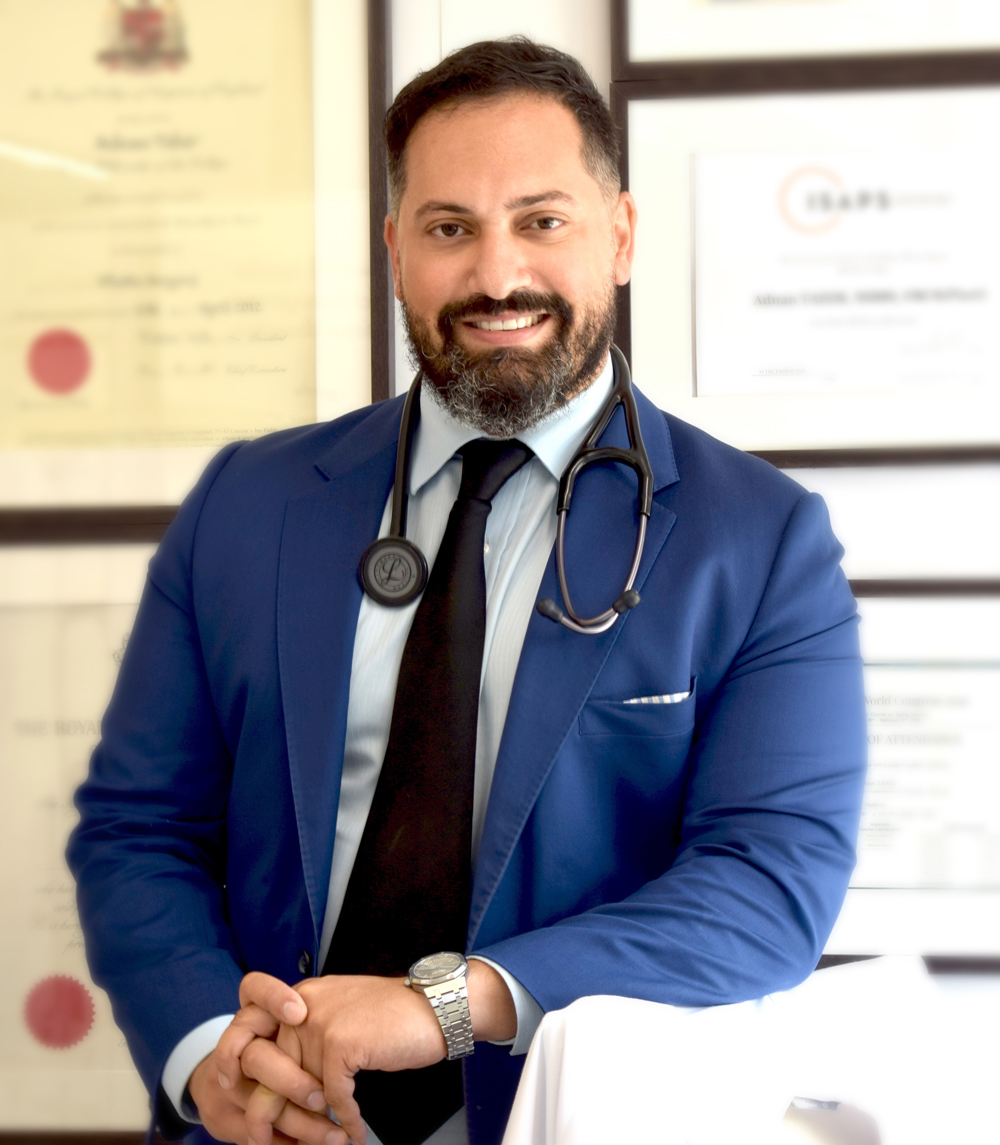
Goals are vital when it comes to forming new healthy habits, and without them it can be challenging to achieve ideal wellness. However, big, sweeping New Year's resolutions can be tough to stick to. Dr Ali Razzak, a consultant in family medicine and aesthetics expert at King’s College Hospital - UAE, offers realistic and achievable ways you can get started on your 2020 health targets and make them long-lasting.

Dr Ali Razzak - Family Medicine Consultant at Aesthetics by King's College Hospital
1. Manage that diet

Razzak, who has over a decade of experience, says you should aim to be within the healthy weight range according to your height (a BMI of 20-25), and this can be achieved through a combination of diet and exercise.
The key to a good diet is eating a well-balanced variety of foods, which includes adding more fruit, vegetables, fish and foods with polyunsaturated and monounsaturated fats, Razzak says. You should aim to consume at least five portions of fresh fruit and vegetables a day, while cutting down on foods high in cholesterol, animal fat and salt. He adds crash diets should be avoided as this is all about forming durable good habits.
2. Get moving

The benefits of regular exercise cannot be highlighted enough, Razzak emphasises. The British Heart Foundation recommends you should try to be active every day and build up to a total of 150 minutes of moderate aerobic activity every week. Razzak, an Imperial College London School of Medicine graduate, says traditional exercises like playing a sport or swimming all count. Physical activity may also include everyday things like walking, gardening and climbing stairs.
3. Break a bad habit by quitting it gradually

Razzak, who is the Medical Director of King’s College Hospital Marina Medical Centre as part of his family medicine role, says if you’re a smoker, you should aim to cut down and then ideally stop all forms of tobacco smoking, including shisha. Did you know a one-hour shisha session is equivalent to smoking 60 cigarettes?
4. A good night’s sleep is important

According to Razzak, who undertook postgraduate training to become a consultant in family medicine after earning bachelor’s degrees in Medicine and Surgery and Neuroscience, you should also try to get at least seven hours of uninterrupted sleep each night. He explains while many believe a drink can help get them to sleep more easily, it actually causes interrupted, fragmented sleep, which will result in feeling tired and weary in the morning.
5. Don’t’ forget that check-up

If you are over 40, it is important that you see your family medicine doctor to get a full check-up of your blood pressure, sugar and cholesterol levels, Razzak, who was the Clinical Director of one of London’s top performing urgent care centres, says. You should also discuss any other health issues that you may be concerned about or at risk of, based on your family history. The family medicine specialist, who has been involved in a wide variety of general practice services, explains this way you can identify any potential risks you may be prone to developing, whether it’s heart disease, strokes or other serious conditions. By beginning to make the right changes today, you can protect yourself for the future.
















